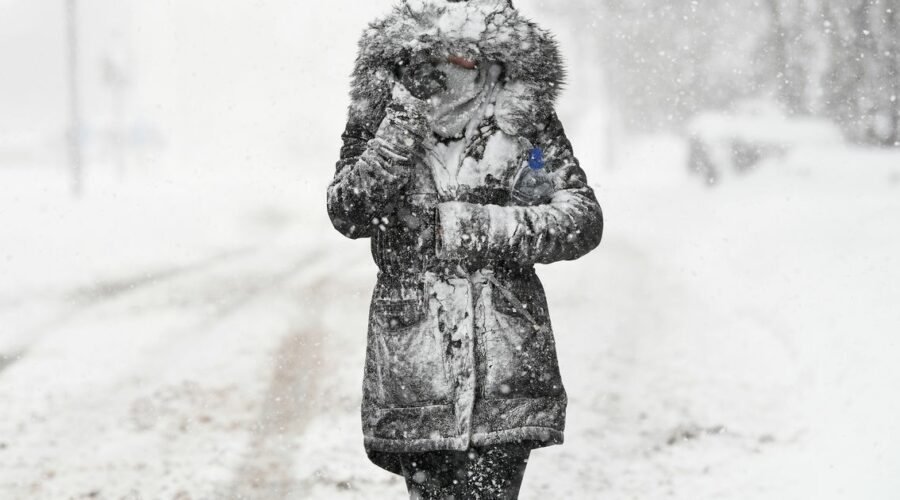BBC weather forecast tech glitch has Brits bracing for freezing start of July
Brits have been left petrified over a freezing first week of July following a weather forecast glitch.
Weather is set to clock in close to the seasonal average for most of the country – with the odd shower here or there, but not according to a popular forecaster.
But visitors to the BBC weather app and website have been left with a cold sweat after seeing temperatures of more like 7-8C on their screens.
READ MORE: Britain set to roast with record-smashing 5 heatwaves that could beat last year’s 40.3C
According to the BBC – which has issued an apology for the confusion – the problem is being caused by a third-party supplier with technicians working on sorting a fix.
The shock of seeing the sudden dip has been made starker by the mercury staying pretty consistently above 20C in recent weeks.
With that being said, temperatures are expected to take a little dip in the coming days – just maybe not to the extent seen on the BBC.
"While the data for Friday and Saturday has now been fixed and up to date, beyond that the technical glitch is still showing temperatures of 7C or 8C,” Weather presenter and meteorologist Simon King explained.
"Don't worry, we're not going back to winter. Temperatures in fact will be around the average for the time of year – around 16C to 23C – north to south across the UK.”
Heavy rain and stronger winds are anticipated in some areas.
The technical glitch is understood to also have affected TV broadcasts.
According to the BBC News at 10, temperatures were set to drop back down to around 8C in the likes of Edinburgh, Belfast, Cardiff and London.
In a statement, BBC Weather said: "Our apologies for the incorrect temperatures appearing on the website and app. We are working with our data suppliers to fix this fault."
"The BBC weather app has gone back to February,” one person wrote on social media, while another described it as “drunk”.
To stay up to date with all the latest news, make sure you sign up to one of our newsletters here.
Source: Read Full Article




